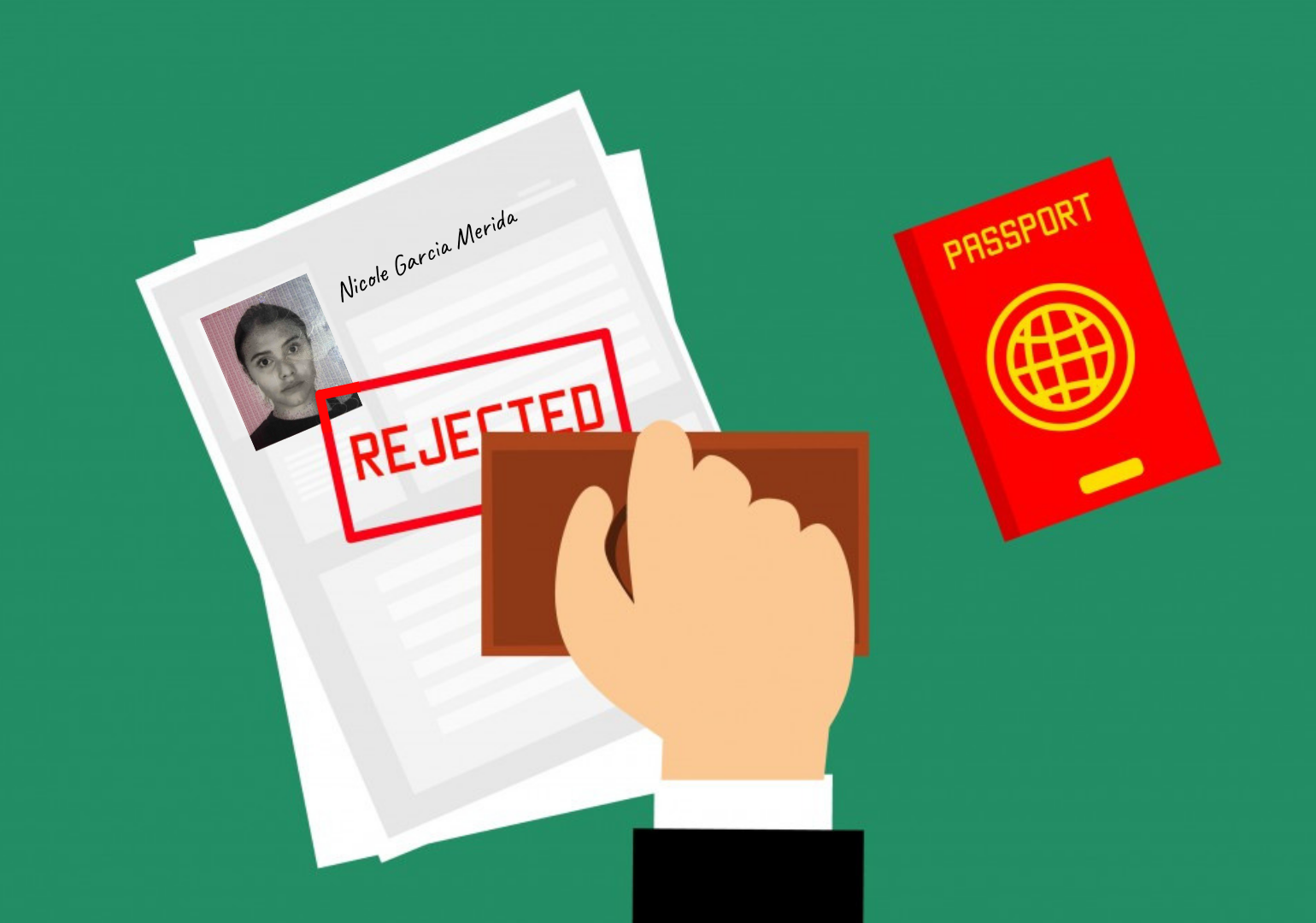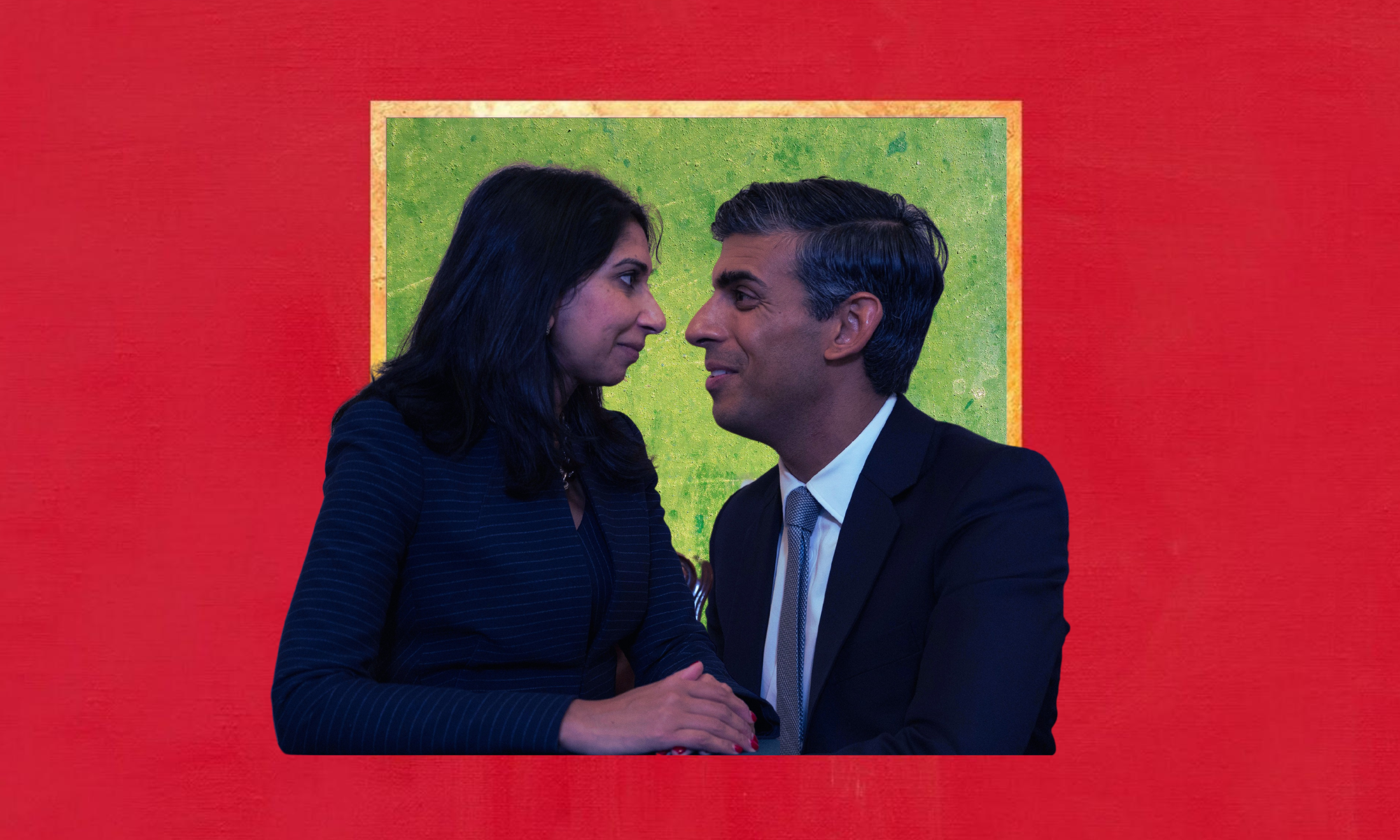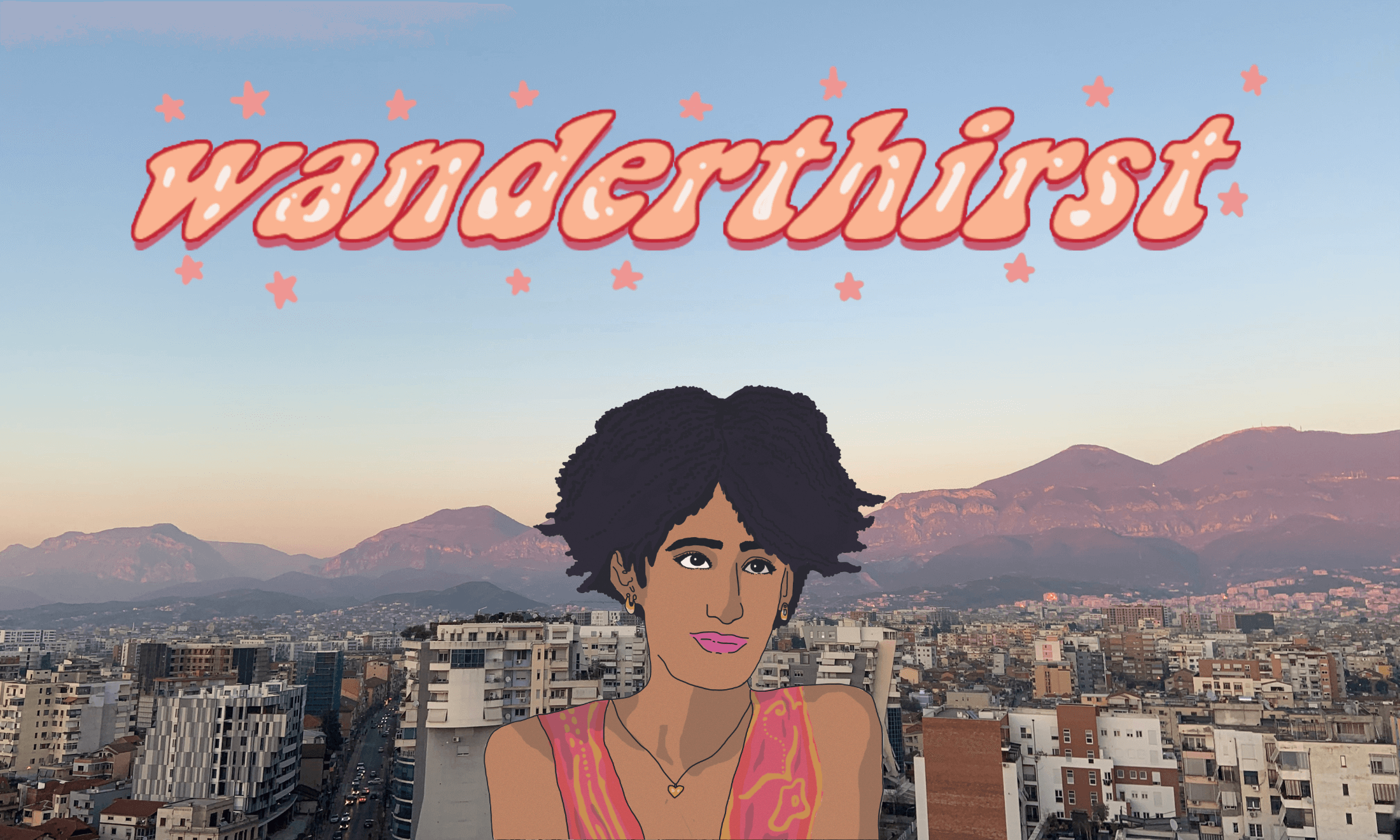
Had you been one of the people walking past the UK embassy in Bogotá, Colombia around mid-September 2015, you would’ve been witness to the single most tragic moment of my life.
I had uncontrollably sobbed in many different places before that – the hospital, a courtroom, my grandmother’s garden when we buried my dog – but never like that. Never on a staircase facing a busy avenue on the phone to my mum trying to string sentences together and punctuating them with heaving sobs, while a security guard tried to usher me away from the premises because “this wasn’t the place to do this”.
“What better place to do this?” I thought. “Embassies are where dreams come to die.”
I was born and raised in Guatemala, and my father and I would talk about the day I’d finally go study abroad. It was his dream for me.
He wanted to give me a future unburdened by the ignorance and violence that permeated our home country. From the age of 12, when I applied to go to boarding school in the UK, my dream had been to leave. I worked towards that throughout my teenage years, and when I finally received my unconditional offer to study journalism at Cardiff University, it felt like the hardest part was over. I was wrong.
I’ve struggled with anxiety and depression from a very young age, but nothing has been quite as tantamount as the breakdown triggered by my student visa rejection.
I had gone into the whole process with a shocking level of naivety. The UK embassy in Guatemala City was more decorative than anything, so I had to travel to Bogotá, the nearest embassy, to apply. I stayed with my stepmum’s sisters for two weeks before I received an email that informed me my passport was ready to collect.
“I remember being handed back my passport, open to an empty page where my visa should’ve been, and not having a clue of what to do next. I never planned for this”
I remember being handed back my passport, open to an empty page where my visa should’ve been, and not having a clue of what to do next. The hardest part should’ve been making it through and graduating high school, saying goodbye to my sisters, deciding what to pack. I never planned for this.
I returned home to Guatemala defeated and crashed into my mother’s arms for about a week before she peeled me off the bed and said, “It’s time to try again.” Back to Colombia I went.
I’ve never felt more miserable or more isolated. I couldn’t eat or sleep. The clothes I brought with me hung off my body when I got back. I was having panic attacks every day, hiding in the shower of my step-aunt’s house. Several times, I went in fully clothed because my shaking hands made it impossible to undress. I’d cry under scalding water wanting to drown the feelings in my head.
I remember hoping that after it all, not just the money but the pain, I would be given my visa and allowed to study in the UK.
And I was.
I recognise my privilege. Not everyone gets as lucky as I did. Once I got back from Colombia I only had three days to pack up my life into two suitcases and say goodbye to the friends and family I’d known for 17 years. But this was fine, because my dream, and the dreams my father had for me, they were all going to come true.
Had you told me that it would’ve been at the cost of not only thousands of pounds but also my mental health, and that it would’ve brought on depression so severe that memories from those two weeks come in small, unintelligible bursts of sadness, I don’t know if I’d done it again.
When it was time to apply to extend my visa so that I could do a masters I would burst out crying randomly and frequently. At work, at home, on nights out, on dates. I cried when I got my biometric residence permit in the mail. I well up every time I engage in a staring match with the expiration date.
“Before Theresa May was Home Secretary, students had two years to find a job. Now it’s two to four months”
It wasn’t always this way. Before Theresa May was Home Secretary, students had two years to find a job. Now it’s two to four months. The fear-mongering hostile environment policy that the Conservative Party hold so near and dear effect everyone. It alienates and discriminates. The fact that it’s so much harder to get a visa when you’re from a “high risk” country (read: the Global South) should be indicative enough that it’s not a policy based on safety, but xenophobia.
As my MA wraps up I’m overwhelmed with the number of workshops on how to improve my CV or panels of industry experts telling me how to ace an interview. None of these can prepare me for the hardest part: I am not wanted here.
During the first week of my MA we had a student visa information session. I remember being sat at the back biting the skin off my fingertips. I held up pretty well until the lady giving the talk said: “You want to be realistic about your options after your degrees. Most companies don’t want to go through the trouble of sponsoring an international student.”
No amount of talent or degrees will make me less of an alien. I will never be able to shake off the feeling of unwanted-ness that came with my rejection or with that woman’s careless words or with the racist hostile environment that masquerades as a national security policy.
Right now, my life rests on a toppling tower made up of the calendar days I have left in the country before my student visa expires. It’s around 110.
If I think about it too much, I’ll have a panic attack. If I think about it too little, I’ll also have a panic attack. Like a monster under my bed just waiting to grab me, there’s no escaping the feelings of rejection and uncertainty – and I’m sure they’ll be there long after I leave.









